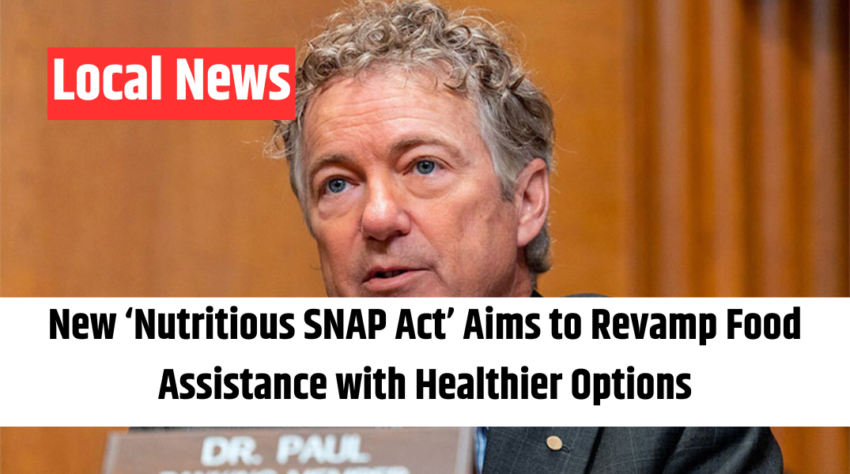U.S. Senator Rand Paul has unveiled the Nutritious SNAP Act of 2025, a new legislative proposal aimed at encouraging healthier food choices within the Supplemental Nutrition Assistance Program (SNAP). The bill seeks to eliminate the use of SNAP benefits for purchasing junk food and sugary beverages, while also giving states more authority to tailor the program to local health priorities.
Paul said the bill addresses a growing concern that SNAP, while successful in reducing food insecurity, is unintentionally contributing to rising rates of obesity and chronic disease by allowing the purchase of unhealthy processed foods.
“SNAP was meant to reduce hunger and improve nutrition,” Paul stated. “It was never intended to fund poor dietary choices that are now driving up rates of obesity, diabetes, and other preventable diseases in our communities. This bill puts health back at the center of the program.”
Currently, SNAP supports over 42 million Americans by helping them purchase groceries. However, research indicates that approximately 25% of SNAP funds are spent on junk food such as soft drinks, chips, snack cakes, and other sugary or highly processed products. Paul argues this trend undermines the program’s mission and burdens the healthcare system.
Also Read – Wawa Expands to West Virginia with Groundbreaking of First Store
Several states, including New York, California, and Minnesota, have previously attempted to implement restrictions on SNAP purchases to exclude certain unhealthy foods, but those efforts were blocked by the U.S. Department of Agriculture (USDA). Paul’s bill aims to remove that federal resistance.
Key provisions of the Nutritious SNAP Act of 2025 include:
-
Banning the use of SNAP benefits for purchasing soda, desserts, and snack items like potato chips and cake mixes.
-
Restricting approved beverages to water, cow’s milk, plant-based dairy alternatives, and 100% fruit or vegetable juices.
-
Allowing individual states to establish their own additional restrictions on SNAP-eligible foods, providing flexibility to address regional public health concerns.
Paul says the bill is a step toward better aligning the program with its original intent—supporting low-income families with access to nutritious food.
“The Nutritious SNAP Act is about protecting both the health of SNAP recipients and the integrity of taxpayer-funded programs,” he said.
More information about the bill can be found on Senator Paul’s official website at www.paul.senate.gov.
